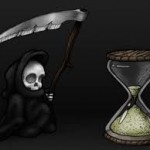In Light of the Ongoing NFL and NCAA Football Crack Down on Blows to the Head, Former Boxer Reminds Us That Head Trauma is No Joking Matter
 I was only thirteen-years-old when I witnessed my friend and boxing teammate George Bowman die from blows to the head; 32 years later, the memories of what happened that day still haunt me.
I was only thirteen-years-old when I witnessed my friend and boxing teammate George Bowman die from blows to the head; 32 years later, the memories of what happened that day still haunt me.
To this day none of my fellow boxing friends and former teammates has ever spoken a word to each other about what we saw so many years ago. It’s as if George Bowman’s death is some sort of black hole that no one wants to come near for fear of being swallowed up and never again seeing the light of day. But today I’m going to share the story of George Bowman in hopes that it may prevent a similar event from occurring. Sharing this is also a cathartic measure to help relieve some of the guilt I still carry within me for my actions that day and for not being able to save George’s life.
It Was a Time of Greatness
Setting the stage: it was 1978, Columbus Ohio, during the peak period of amateur boxing in the United States–a time when the Columbus area was considered by many to be the amateur boxing capital of the world. The late Bill Cummings Jr., a two-time AAU national coach of the year winner and the man who started the renowned Ohio State Fair Boxing Tournament, was our coach. National amateur champions and future world professional champions like Hilmer Kenty, Pete Milton Seward, Jerry Page, Richard “The Fly Rozelle”, Mike Johnson, Forrest Winchester, Vonzell Johnson, James “Buster” Douglas, John Summerall, Mike Bradley, Terry Moore, John Moore, Tony Johnson, Steve Gregory, Charles Culpeper, Tommy Ayres,Steven McCorry, and myself. All found their way to train at the famous Mock Road OYC (Ohio Youth Commission) gym.
Kronk and OYC Gym Wars
Oh, I know that some of my Detroit, Michigan friends would argue the point about Mock Road OYC being the premier gym of the era, since legendary amateur and professional trainer Emanuel Steward’s Kronk gym was getting the lion’s share of the limelight at the time. But the truth of the matter is that Emanuel Steward learned a lot about how to organize Kronk by emulating Bill Cumming’s Mock Road OYC set up. Both boxing clubs would routinely travel to each other’s gym to compete in some of the most classic and brutal boxing matches that I can ever remember during my boxing career–they were outright wars! But enough about that, let’s get back to George and how this whole tragic story began.
The Death of George Bowman
George was a pretty good boxer who had just fought in a local boxing tournament that he won, but shortly after the bout he began complaining to us (his friends and teammates) about a headache that wouldn’t go away. We all just thought George had the same type of headache that most boxers sometime get after a match or hard sparring session, but just learn to live with until it clears up. However, this particular headache would turn out to be something much different.
A few days later, George Bowman and another good friend of mine, Linwood Allison, were sparring inside the Mock Road Gym when Linwood drops George with what looked to me like a very mediocre punch. George was known to be somewhat of a clown in the gym so we all thought he was just faking it. Right away everyone present began teasing George and yelling at him to get up. George got up alright but Linwood hit him again and he crashed down hard to the canvas. This time Hilmer Kenty, one of our teammates/trainers at the time who would later go on to win the WBA World Lightweight title, immediately halted the sparring session and attended to George.
It’s not unusual to see someone go down during a sparring session, so none of us in the gym thought much about the incident which ended our practice for the day. Therefore, like normal we all huddled together after practice to crack yo mama jokes on one another. Tyrone Harris, a former Ohio State football player and one of our assistant trainers, came over to join in on the fun, when all of the sudden George walks up to him, rubbing his head and complaining to Tyrone about his head hurting.
Tyrone tries to get George to set down, but George grabs his head with both hands and begins to rub it and to shake it wildly, while screaming and groaning in pain. We then see George crumple to the gym floor right in front of us. His body is lying there convulsing violently at first, then motionless but contorted—his arm twisted one way his legs another and his head another. Hilmer and Tyrone rush to help him. Someone calls the ambulance. The ambulance arrives and the emergency crew works to revive him. “We almost lost him,” I hear one them say. In a coma they rush George away on a stretcher to the Hospital. Two days later–15-year-old George Bowman is dead.
The Blame Game
Who is to blame? Am I—part of the group of kids who were laughing and joking when George first got dropped by Linwood and then yelling at him to get up? Was it negligence on the coaches’ part? Should one us—his friends—have said something to the coaches about the headaches he told us about after that tournament fight? How were we to know the signs? I am still asking myself to this day–how could this have been prevented?
I guess some things in life you just do not talk about it and obviously this was one of them. I’ m still very close to Jerry Page, Hilmer Kenty and Tyrone Harris and we never ever talk about George Bowman. We never talk about it! We never mention it. Never.
Silence is Not Always Golden
Looking back, it was foolish on all of our parts to keep silent about what happened to George Bowman. If we would have talked openly about what happened to George back then we could have helped to spread awareness to coaches and athletes never to ignore the signs of head trauma. Maybe we could have even prevented some of the similar deaths that have occurred since 1978.
That’s why I applaud the NFL and the NCAA’s crack down on violent blows to the head and making sure that players are 100% medically ready to return to competition after being knocked unconscious. This is for real! All contact sports are dangerous and we should never take an athlete being knocked out or even momentarily stunned as something to take in stride.
My hope is that no coach or athlete nor their family and friends ever ignore the early warning signs of serious head trauma. Never take for granted a blow to the head that stuns or temporarily drops an athlete in any sport. Constantly monitor your athlete, ask them how they are feeling—never allow them to immediately continue if they get stunned or dropped. And please do not dismiss complaints of headaches—ever!
Apology to the Bowman’s
I was the last boxer to train with Bill Cummings Jr. before he died in ’85. He never denied me water, and he always knew when enough was enough and he constantly kept dialogue with me. He was always concerned about how I felt and where my life outside of boxing was headed. Unfortunately, Bill Cummings Jr. was not inside the gym the day when George died. Mr. Cummings was a no nonsense kind of a coach and I know one thing for sure–if he were there no kid would have been taunting George when he went down the first time. Those little boy taunts I made 32 years ago still scorch my soul.
Life did go on for us after the death of George Bowman: Hilmer Kenty went on to win a World Lightweight title, as pro, Jerry Page won the ’86 Olympic Gold Medal and I won a world amateur title. But George never got the chance that we did. What is even worse: we all moved on with our lives and have never bothered to stay in touch with the Bowman family.
I know this event devastated the Bowman family and it also deeply affected Linwood and everyone else who was there. As for me:
“To the Bowman Family: I’m sorry I kept silent about your tragedy for so long. I’m sorry I never kept in contact. And to my friend and teammate, George, I’m sorry for my ignorance about head trauma. I’m also sorry for the taunts I made on that ugly day. I miss you and have never forgotten you. May your soul rest in peace.”
Darin Allen
Everybody reading this please remember to never take head trauma lightly, especially the early warning sign–headaches–when they involve contact sports.




Thanks for putting up this article about my family history now I have something to share with my kids when they get older. I wasn’t born at the time it all happen but I heard story bout this event. R.I.P Big Brother Missed but never forgotten
Sad but excellent story. One, where I can see it’s power of self healing. I hope all get the message that such sports as boxing and football are extremely dangerous. Neither sport should be taken lightly. This story makes me feel the pain the family, you, Mr. Cummings and all had to go through or deal with. God bless you all.
WOW! This is a very touching rememberance of a tragic event! When I first started reading this I thought I would be reading about a tragedy that occured in your life. However, I slowly began to “remember”. Not only the key players, but also George! You unearth some memories that I had buried soon after the event happened. I remember how upset I was about George’s death, I remember the rumors that went around about Linwood (all unfounded), and I remember somberness in the ‘hood. George was a cool person and I am sure his family will appreciate your rememberance of his life!!!!
Vinsetta
Vinsetta first sorry for my slow response. It was a very tragic event and I appreciate your comment. How is the Bowman Familly doing?